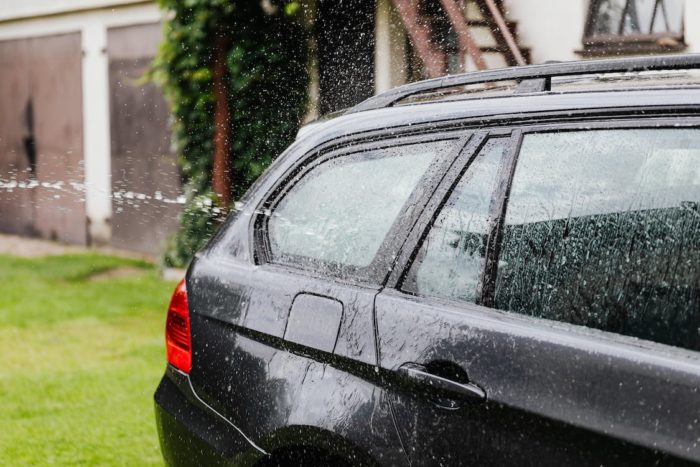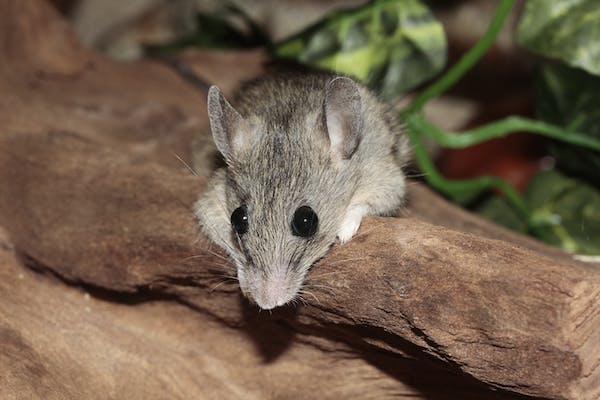Are you upset with your car seats being chewed down by rats?
Are the rats spoiling your car and its engine?
It’s high time you get them out of your car immediately.
Important Note: If you're tired of pests and want a reliable solution, then you should definitely consider seeking help from a professional pest control company. DIY solutions can be effective, but if you're dealing with a significant pest infestation, you don't want to rely solely on DIY methods. Pest control companies typically don't charge huge fees. You can fill out this form to receive free quotes from the top local pest control companies, and compare the quotes and see for yourself. Then, finally, your pest problems will be eliminated for good.
Rats can be so troublesome and disgusting to deal with. Imagine these squeaky rodents spoiling an excellent long drive!
Very unpleasant, isn’t it?
Don’t worry! We have given you tips to get rats out of your car. Also, you will learn how to avoid future rodent invasions.
So keep reading to get rid of the nuisance from your cars!
Troubles Of Having Rats In Your Car
No one likes having rats in the car. They are disgusting and can also damage the car engine and cause significant trouble.
Rats love to live in dark, warm areas; your car’s engine could be the most favorable spot for them.
Rats create a nest and stay in the engine. Yes! They live in your engines, having a good time chewing up wires and gnawing them to choke the engine.
So if you see rats in your parking space, don’t be shocked if you find your engine check showing an error.
You might also experience damaged seats, pulled-out foam from the cushions, and damage to the car’s audio system.
Sounds horrible, right? Yes! Rats can cause so much trouble and lead you to spend so much on repairs.
But don’t panic! We have given you tips and tricks to eliminate these tiny nuisances from your car. Scroll down for more.

How To Check For Rats In Car?
These are signs that your car is most likely to have been invaded by rats.
- Gnawed wires around the engine
- Shredded gauze in the air vent
- Chewed insulation and upholstery
- Chew holes in nonmetal engine components
- Claw marks and droppings
How To Get Rid Of Rats In Your Cars?
Use Traps
You must first try to find out if the rats nest in your car. Having found them, the first thing you should do is place traps to catch them.
But before you use them, you might seriously hurt or even kill the rats. So be careful not to leave the dead rats inside your car. You don’t want your car stinking of dead rats, do you?
Now, rat traps come in different ways. A simple trap can enable you to catch them alive by placing bait.
The best bait you could use is peanut butter. And be careful not to hurt your hands! There are also nontoxic traps that can ensure you don’t kill the rats.
Another popular type of trap is the sticky strip. This uses thick glue or adhesive to trap the rats. These types of traps have several advantages:
- It can be affixed to surfaces inside the engine compartment.
- It can catch more than one rat at a time.
- It is disposable.
- It does not accidentally snap down on your fingers. But be careful not to touch the sticker part of the trap.
Don’t go for traps if you are conscious or concerned that the rats may have a tortured, slow death. Pest control would be the best option for you.
Poison The Rodents
Some substances can poison the rats and kill them.
Mothballs
Mothballs (Paradichlorobenzine) are poisonous to both animals and humans. They have toxic vapors and are dangerous to use.
Some people recommend placing them in a can under a vehicle or hanging a bagful under the hood, but there are serious risks associated with using mothballs.
Sulfur
Sulfur is burned or vaporized to control fungi, mites, or insects. When sulfur is burned, it turns into a gas called sulfur dioxide.
The gas can mix with moisture in plants to form an acid that can damage plant leaves.
But breathing the gas can be harmful to human health. So try to avoid this method as much as possible.
Install Mouse Blocker
The Mouse Blocker is a 12 Volt-powered device releasing an ultrahigh-frequency noise to deter mice from nesting inside your vehicle.
Installing one on your car can chase away rats from your vehicles. This prevents your car from getting damaged by rat chews.
How To Prevent Rats Getting In Your Car?
Though you can successfully get rid of rats from your car using these methods, there are chances they might get into your cars again. To prevent this, you might have to do either of these.
Keep The Area Clear
Look for where your car is usually parked and remove any potential hiding or breeding spots for the rats. Clear the area of bushes or things.
Keep the area well-lit. Rats thrive in dark and warm places. So, eliminate these two conditions, and rats would go away.
Keep the area litter-free, hygienic, and non-cluttered. This will ensure that the rodents do not find a conducive habitat in and around your vehicle.

Eliminate Food Sources
This is very important. Rats look for food sources and live near them for survival.
Avoid throwing leftover food in and around the area of your garage. Also, don’t store food in your cars as it might attract rats to live there.
Not just human food, you also need to be aware that rodents also eat dog and cat food along with livestock feed and seeds. So keep them away from the garage or parking lot.
Use Lights To Stop Nesting
Most rodents prefer nesting in dark places. They hate the light, especially while sleeping.
So consider switching the lights in the garage or park in a place with ample lighting to avoid rats.
During the day, you could keep the car open enough to ensure that its interiors get maximum exposure to direct sunlight.
Use Repellent Fragrance And Odors
Rodents have a strong sense of smell and hate strong odors like peppermint oil, black pepper, etc.
Just apply a few drops of peppermint oil on cotton balls and place them strategically in your car to repel rats.
Block Entry Points
Before you do this, you need to know how rats enter your car. The car’s engine needs air; thus, there are vacant spaces for rats and mice to crawl in and disrupt.
Rats and mice can enter a car by climbing on the tires and crawling their way up. Holes in body panels are also potential entry points.
Since there are many possible entry points, finding out which the rats use is difficult.
You can seek the help of a mechanic to find this. By doing this, if you can block these entry points, then your car is safe.
Try Electronic Deterrents
Some electronic gadgets can deter rats and mice by producing vibrations or sounds that only rodents can hear.
These gadgets are very effective in keeping rats away from cars. An example would be the mouse blocker that has been discussed above.

Biological Deterrents
Many people suggest using cats to chase away rats and mice. But this method’s efficiency depends on the cat’s hunting abilities.
However, if you have decided to use cats, then be careful each time before you start your car, as cats can hide in crevices, and you might accidentally hit or hurt your cats.
Some Precautions
- Be careful before using rat poisons, as they can also be poisonous to humans.
- Don’t use the sulfur method if you have any respiratory illnesses.
- Be careful not to hurt your hands while using a trap.
- The best way to get rats out of your cat would be to get help from an exterminator who would guide you through the process.
Conclusion
I hope you have gotten information on how to get rid of these troublesome little creatures from your car.
Try these methods to keep yourself and your car safe from them.
Make sure to keep your car clean to avoid further infestation.
Also, ensure that you block all the entry points in your car, as mentioned above.
Have a great road trip with a rat-free, hygienic, safe car drive!

